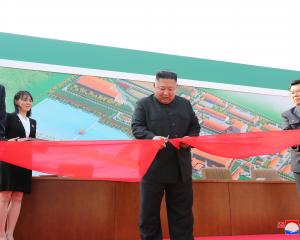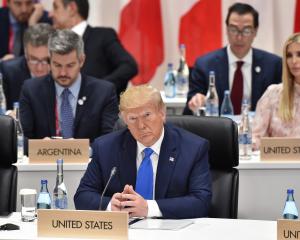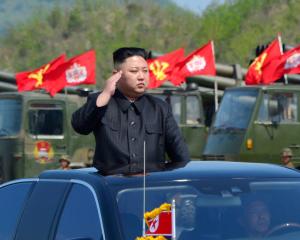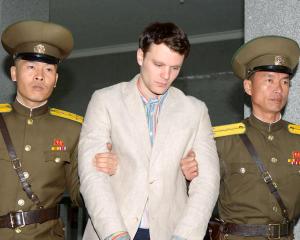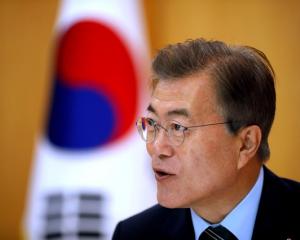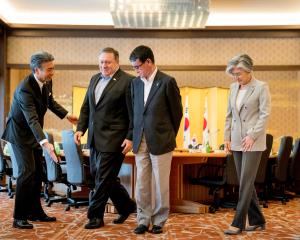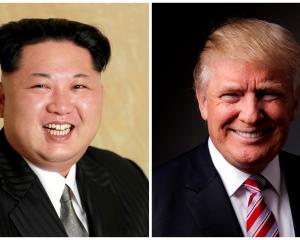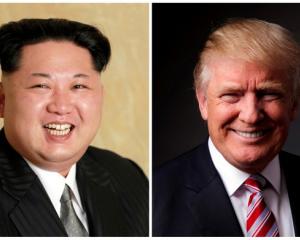North Korea is a past master at the game of "nuclear chicken".
Last Tuesday, it launched what several sources, including the White House and Australian Foreign Affairs Minister Kevin Rudd, labelled an "outrageous" and "provocative" attack, firing several dozen artillery shells at the South Korean Island of Yeonpyeong, killing two South Korean soldiers, wounding several others and damaging as many as 100 homes.
South Korea returned its own barrage of artillery and scrambled jets.
It warned North Korea of "enormous retaliation" if it took more aggressive steps.
The incident is widely seen as the most serious and precipitous since the Korean War ended in 1953, although the similarly unprovoked attack on a South Korean patrol boat, killing 46 sailors, in March this year comes close.
It is as if the regime in the north is daring South Korea and its allies to retaliate more forcefully and provoke an all-out war, and it can hardly be coincidence that earlier this month that it rattled a few international cages when it escorted US nuclear scientists through a new uranium enrichment plant - one much bigger and more sophisticated than had been thought possible to date.
The unpredictability and sheer bloody-mindedness of Pyongyang - which routinely allows large rural sectors of its population to hover on the brink of starvation through intransigence, incompetence and a seemingly nihilistic mindset - might encourage this notion.
But a more sophisticated analysis by seasoned North Korea watchers suggests otherwise.
Periodically, this is what the regime in Pyongyang does - either as a negotiating gambit in an attempt to leverage concessions in its relationships with the outside world or for other, internal, purposes.
Two years ago, the North abandoned six-party talks over its nuclear programme and the sanctions instituted in the face of the nuclearisation of the regime.
It has been suggested that the North would like to rejoin the talks and this is one way for it to do so and obtain advantage.
Already China, the North's only ally, has suggested a six-party meeting to attempt to quell the crisis while strongly denying any suggestion of a back-door invitation to formal resumption of discussions.
More likely, the show of force from the North is connected to a gradual power shift at the head of the regime.
Kim Jong-il has been ailing for some months, if not years.
His son and heir apparent Kim Jong-un was elevated from obscurity and promoted to a four-star general in September.
"Kim Jong-un needs to have something on his resume, which is currently empty.
To qualify as a general, of course, he needs a victory, and I have no doubt that is how this will be played out inside North Korea," former United States state department official Mark Fitzpatrick commented last week.
With this week's joint naval exercises being conducted between South Korea and the United States in the Yellow Sea, the tensions and the rhetoric have intensified.
The North's official KCNA news agency warned of retaliation if its territory was violated: "We will deliver a brutal military blow on any provocation which violated our territorial waters," it said; while demonstrations in the South have demanded a more forceful response to what it sees as repeated provocation from Pyongyang.
Experienced heads in Washington and Beijing are calling for calm, US joint military exercises notwithstanding.
China is being urged from all sides to use whatever influence it might have with the regime to dampen the situation, although to date it has been loath to criticise Pyongyang.
But as the temperature on the Korean peninsula heats up, it may have to push more forcefully than it has in the past.
It is not in China's interests, just as it is not in the interests of anyone, that the skirmishing continue.
The big question is, however, how much influence does China wield over the aggressive, dysfunctional regime? Possibly less than it - or the rest of the world - might imagine.
The North is an unpredictable and highly volatile state.
It is also well-armed and exists in a perpetual state of paranoid swagger.
At the weekend, it moved surface-to-surface missiles into place in the Yellow Sea, a sign that it will not be cowed by the proximate presence of a US nuclear-powered aircraft carrier.
For their part, the South and the US have evidently had enough of the North's own provocative behaviour.
Thus a delicate, highly charged game of brinksmanship is being played out.

